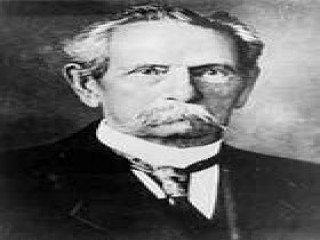
Nicolas-Joseph Cugnot biography
Date of birth : 1725-09-26
Date of death : 1804-10-02
Birthplace : Void, Meuse, France
Nationality : French
Category : Science and Technology
Last modified : 2011-10-06
Credited as : Inventor, ,
92 votes so far
In 1769, Nicolas-Joseph Cugnot designed and constructed the first working self-propelled vehicle for human travel. Perhaps best described as a power tricycle about the size of a small present-day bus, it had one wheel at the front under the boiler and two-cylinder steam engine, and two wheels at the back under the freight area. Called a fardier a vapeur (steam dray), it had a top speed that was slower than walking, about two miles per hour, even without factoring in that it needed to stop 4-6 times each hour to restock its water reservoir and allow the steam pressure to rebuild. A 1771 incident where the driver lost control and the cart ran into a wall is sometimes cited as the world's first automobile accident.
Cugnot's cart was intended to serve as a gun carriage for moving heavy artillery or up to four officers on the battlefield, but beyond a few prototypes it was never manufactured, due to a lack of interest by Louis XV's court. In 1801, Cugnot's steam-powered automobile was moved to France's Conservatoire National des Arts et Métiers, where it has been on permanent display ever since.
Cugnot was born in Void-Vacon, Lorraine, (now departement of Meuse), France. He trained as a military engineer. He experimented with working models of steam-engine-powered vehicles for the French Army, intended for transporting cannon, starting in 1765.
With the French Revolution, Cugnot's pension was withdrawn in 1789, and the inventor went into exile in Brussels, where he lived in poverty. Shortly before his death, he was invited back to France by Napoleon Bonaparte and Nicolas-Joseph Cugnot returned to Paris, where he died on 2 October 1804.
















